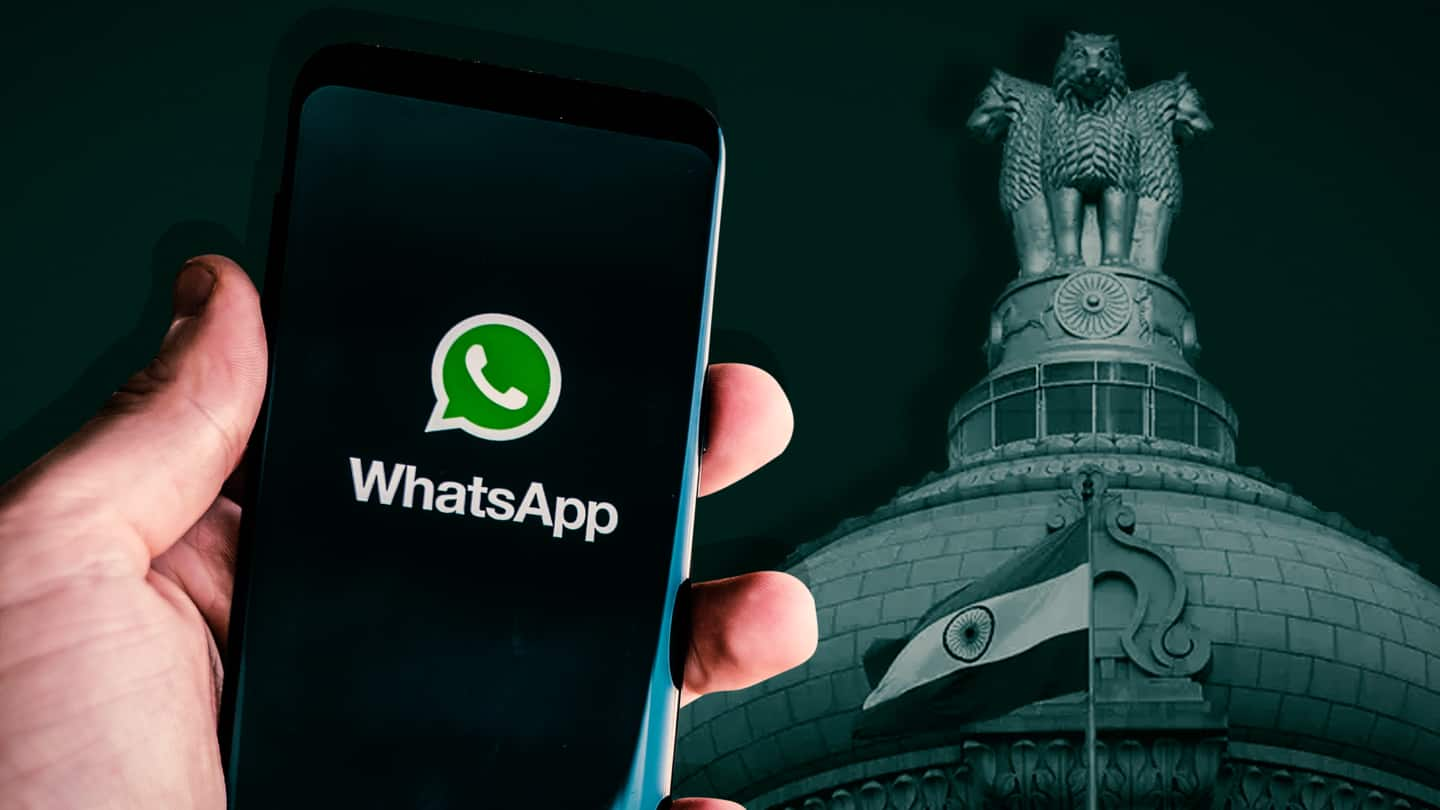
Why is WhatsApp suing Modi-led Government?
What's the story
Days after Delhi Police raided Twitter, another tech giant is fighting back by suing the Indian Government.
WhatsApp, the Facebook-owned messaging service, has approached the Delhi High court to excuse itself from complying to government regulations that it claims would break its encryption systems.
WhatsApp, which has been under scrutiny for flouting user privacy, is now using the privacy excuse to evade government compliance.
Secure link
WhatsApp contends identifying senders will break its encryption system
WhatsApp filed the lawsuit to counter new government regulations being enforced from Wednesday (today). The court plea filed by the messaging service claims enforcing one particular rule would violate Indian citizen's constitutional privacy rights.
WhatsApp is essentially referring to the Indian government's demand to identify the "first originator of information," which the authorities contend is critical for maintaining internal security.
Privacy reversal
WhatsApp argues bypassing encryption will violate user privacy rights
WhatsApp's messaging service backbone is based on end-to-end encryption. The Facebook-owned platform claims it is impossible to comply to government demands without breaking the encryption service.
WhatsApp asserts it has to break encryption for receivers, and thereby compromise their privacy, to identify messages' originators in compliance with the new regulations. This is what it figures will violate Indian WhatsApp users' constitutional privacy rights.
Prior precedent
WhatsApp banks on Supreme Court privacy ruling from 2017
Reuter's sources claim the WhatsApp plea cites a 2017 Indian Supreme Court privacy ruling observing that privacy must be upheld, except when it is at odds with aspects, such as legality, necessity, and proportionality.
WhatsApp believes that the government regulation fails all three of those prerequisites and is therefore unconstitutional. It banks on the Supreme Court ruling to allow it to reject government demands.
Smart play
WhatsApp takes the smarter route compared to Twitter's obstinacy
Tellingly, WhatsApp's position is quite clever. Without categorically refusing to comply with the Indian government's demands like Twitter did, it has instead moved the Indian judiciary to look into what it claims is a violation of constitutional privacy rights.
Meanwhile, WhatsApp has declined Reuter's request to comment on the issue. The publication hasn't named its sources citing sensitive nature of the matter.
Media Ethics Code
Here are the guidelines WhatsApp refers to in alleged lawsuit
The new government regulations under question are the Digital Media Ethics Code unveiled in February by the Ministry of Electronics and Information Technology (MeitY).
The guidelines mandate social media platforms to exercise the same accountability as traditional media, failing which the safe harbor protections provided by Section 79 will cease to apply. These shield the likes of WhatsApp from liability for user generated content.
Compliance officers
How will the government ensure compliance of the rules?
Social media entities must appoint a chief compliance officer, who must reside in India and undertake responsibility of ensuring all rules are followed. Furthermore, the platform will also have to appoint a nodal contact person for on-demand coordination with the law enforcement agencies.
The government also requires monthly reports on the complaints received and action taken, along with specifics of the content removed proactively.
Content takedown
Guidelines define 10 content categories that cannot be hosted
The rules specify 10 content categories that cannot be hosted, which broadly includes content that is illegal, defamatory, harassing, pornographic, or causes hurt to the nation or invasion of privacy.
Social media platforms have 36 hours to remove such content after receiving notice from the courts or the government. Certain content related to pornographic and pedophilia must be removed within 24 hours.